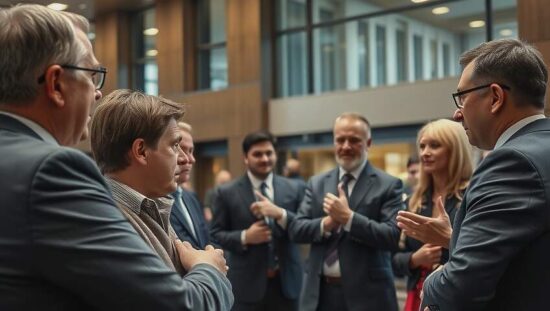Leading business executives and prominent economists are voicing concerns that Germany risks prolonged economic stagnation without significant structural reforms. In interviews, Siemens CEO Roland Busch stated that certain historically successful industries now face immense challenges and may be unsustainable within the current German framework.
Belén Garijo, CEO of Merck, emphasized the need for proactive governmental policies. She called for a more agile and streamlined approach, advocating for reduced bureaucratic obstacles and increased flexibility to foster innovation.
Ola Källenius, head of Mercedes-Benz, urged the German federal government to champion a reform of the Green Deal, working in collaboration with European partners such as Paris, Rome and Warsaw. He warned that Europe risks forfeiting its industrial leadership if it fails to adapt to current realities, citing overregulation and stagnation as potential threats.
Clemens Fuest, President of the Ifo Institute, stressed that isolated measures are insufficient and a comprehensive, cross-departmental reform concept is crucial. He specifically highlighted the need for deregulation of capital markets, increased funding for startups and innovation, a review of employment protection laws, simplification of the tax system and streamlined planning and approval processes, alongside administrative digitalization.
Arndt G. Kirchhoff, President of the NRW Employers’ Associations, noted that businesses in Germany are significantly burdened by high corporate taxes and social contributions compared to international competitors, excessive bureaucracy and uncompetitive energy costs.
Wolfgang Große Entrup, head of the VCI Chemical Industry Association, called on the government to prioritize genuine reforms within its first 100 days in office, specifically advocating for a 25% reduction in administrative paperwork. He warned that Germany’s position as a competitive location remains precarious and the global landscape will not wait for necessary changes.





